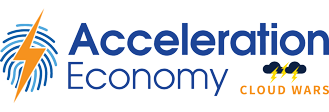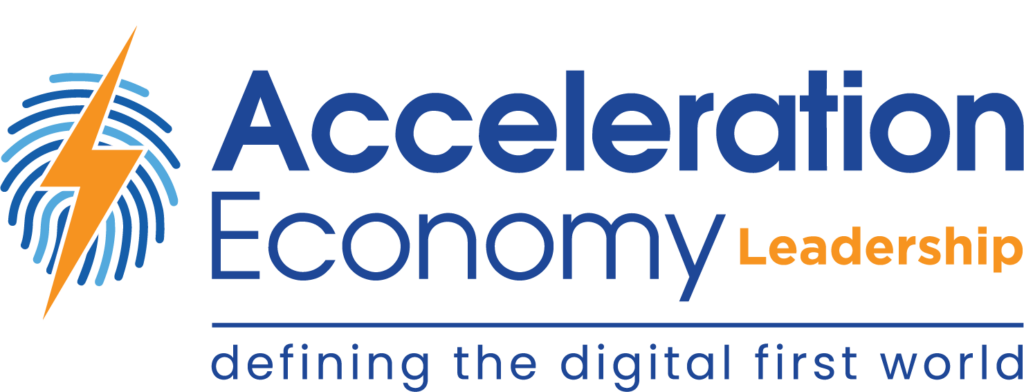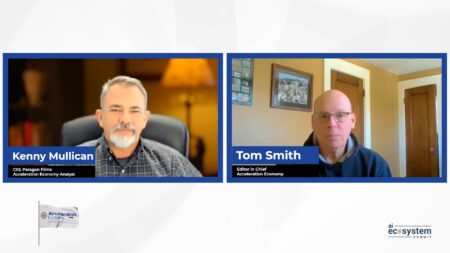For years, professional services organizations have relied on the reputations and expertise of the individuals in the firms themselves. Executive search firms, law firms, consulting businesses, and accountancies all sell specialized knowledge not resident within their clients’ businesses. Client-facing experts in these firms are supported by back-office staff crunching numbers, searching for candidates, developing drawings, invoicing, and preparing proposals.
Now, rapid advancements in technology are disrupting professional services organizations in a way that is different from other industries. Hyperautomation, particularly robotic process automation (RPA) and artificial intelligence (AI)/ machine learning (ML), is speeding up back-office functions, with technology replacing some human functions. However, now it’s affecting the front office.
Many clients no longer need the same amount of support from their services providers. Depending on their level of sophistication and comfort with technology, customers can use inexpensive, targeted AI applications to gain insights on their own about everything from customer needs to talent acquisition. Clients increasingly look to services providers to deliver only the insights they can’t get themselves.
AI and machine learning tools are impacting what clients expect from their services providers. In a way, automation is commoditizing some of the services delivered by professional services firms.
When a client seeks enhanced deliverables from its professional services suppliers, the services organizations must “up their game.” So, where does this leave procurement and how does the chief procurement officer (CPO) help? In this analysis, I’m going to review four areas where procurement expertise can help their professional services organizations make wise tech decisions, stand apart, and, ultimately, enhance revenue.
Which companies are the most important vendors in AI and Hyperautomation? Click here to see the Acceleration Economy Top 10 AI/Hyperautomation Short List, as selected by our expert team of practitioner-analysts
Evaluating Options in a World of Reciprocity
In the professional services field, there is often pressure from clients for reciprocity. An airline, for example, may expect its insurance carrier to use the airline itself for business travel. A technology company may be pressuring its suppliers to use its applications without a formal RFP. Sales professionals are often asked by clients to influence the supplier selection process. But merely handing business to a client is frequently not the best option; that’s one key area where the CPO comes in.
When buying technology, reciprocity complicates an already challenging process, because as tech providers broaden their offerings, there is considerable overlap among providers. There are dozens of business automation options and those from clients may not be the right ones.
A CPO can use their understanding of supplier performance, risk, and cost to inform decision-makers on the best possible solutions. Procurement teams gather and articulate requirements for the purchase and objectively evaluate technology options against those needs.
By ensuring that every contender responds to the same questions, organizations can evaluate those contenders in a factual way to analyze the strengths and weaknesses of each technology product. This fact-based analysis can help the client-facing part of the business tremendously when there is pressure to choose a product from a client that is inadequate for the needs of a professional services firm.
Ease of Use
Professional services organizations place a strong emphasis on the expertise of their employees, and technology investments must support the development and deployment of this expertise. Aside from getting the job done, technology employed within professional services needs to be simple to use because, increasingly, clients are demanding self-service models.
“Power users” will always be appreciated, but customers expect apps to be intuitive because the days of the long, multi-session training class are over. Usability is a criterion that CPOs may not have evaluated 15 years ago, but today it’s important as more people are expected to have access to applications and the number of products to choose from has increased.
CPOs who incorporate ease-of-use criteria into product evaluation are ensuring that the technology will be used as intended. The willingness of some tech providers to follow a “play-before-you-pay” model underscores that usability is an important differentiator in making technology choices.
Negotiating an Agile Contract
A CPO can use their negotiating expertise to ensure that an organization is getting the best possible deal on any new technology investment. Ensuring agility is one element. Software license agreements are typically tiered, with price being dependent on the number of users. In a professional services firm, this can vary dramatically based on the number of clients and the type of client activity at any one point in time.
A way to manage cost is to carefully monitor licenses and conduct right-sizing exercises that ensure unused licenses are not being paid for. Contracts covering that spend must be flexible so that unit pricing can be adjusted as the number of users fluctuates.
Creating Outcome-Based Agreements
These are becoming increasingly common in the professional services field. Instead of relying on traditional time and materials contracts, companies sign agreements that call for specific outcomes within a certain timeframe. This is particularly meaningful because, with hyperautomation, the labor is decreasing while the investment may be increasing – so traditional methods of accommodating for costs may no longer be applicable.
For CPOs, this shift to outcome-based agreements means they must ensure that the service provider is meeting the agreed-upon outcomes in a satisfactory manner and at an appropriate price point. CPOs are also responsible for maintaining regular communication with providers to ensure that expectations are being met.
Register here for your on-demand pass to view all content from Partners Ecosystem Digital Summit. The digital event, which took place on April 20, focused on analyzing the business and IT imperatives around cloud, AI, automation, data modernization, and cybersecurity that define the future of partnerships.
Conclusion
As clients are able to do more on their own, professional services providers must be able to clearly define the specific capabilities that differentiate them from their competitors. Perhaps that comes by investing in more or different technology than clients have access to, which helps deliver unique insights. Perhaps it is targeting a specific customer base. Maybe it’s the rapid delivery of results. It also may be price, especially if there are no other differentiators. But whatever it looks like, technological advances are streamlining the back office and increasing competition on the front end.
By using a combination of their deep understanding of suppliers, research capabilities, and strong negotiating skills, CPOs can help professional services organizations make wise tech investments. With the right technology in place, they will be able to gain a competitive advantage and grow their businesses into the future. By leveraging their cost-saving strategies and contractual negotiation skills, CPOs can help organizations not only reduce expenses, but also get the value they need from tech partners.
Want more tech insights for the top execs? Visit the Leadership channel:








